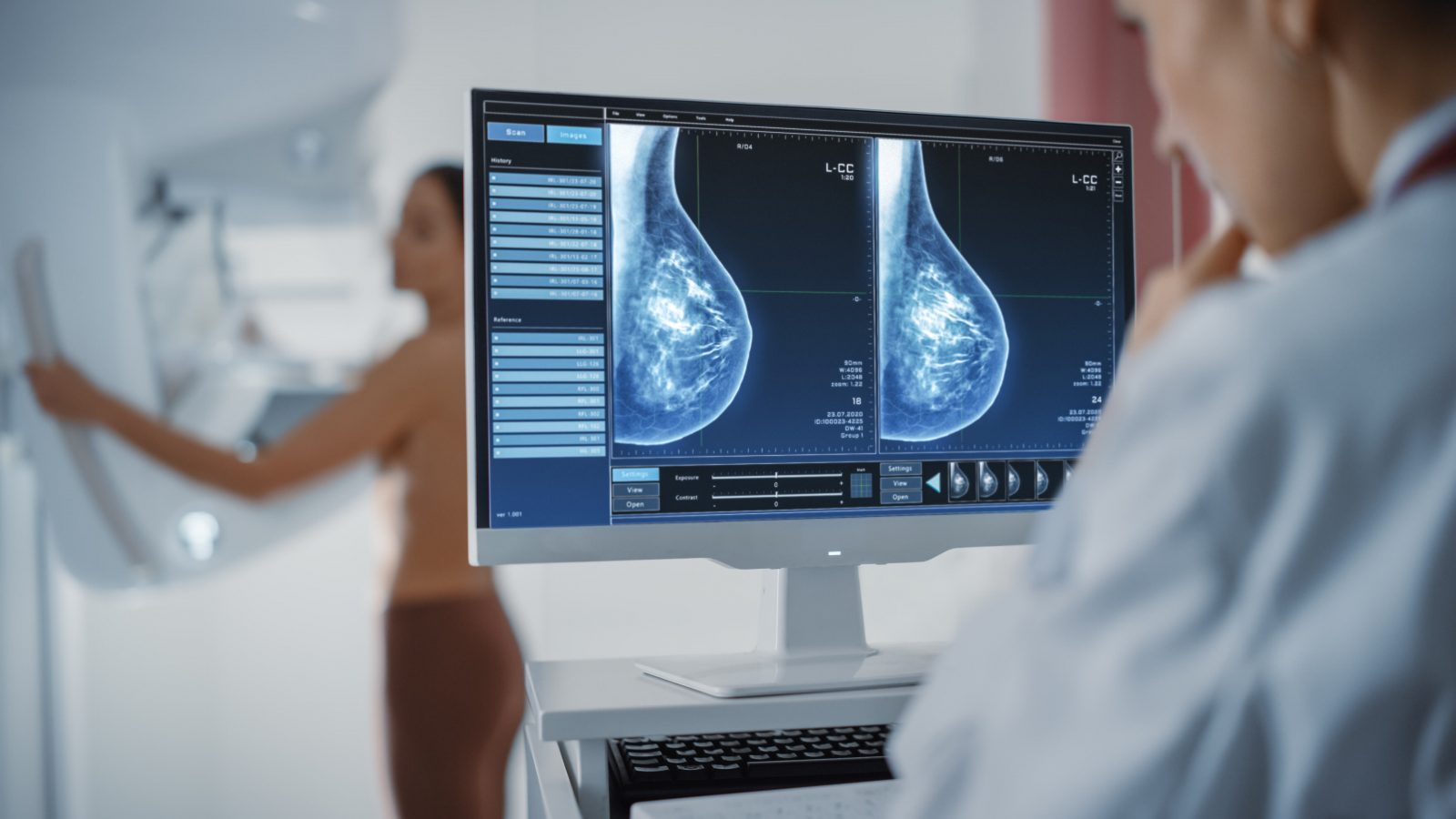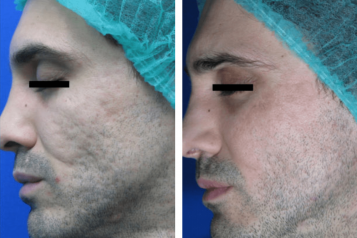 Photo Credit: Shutterstock
Photo Credit: Shutterstock
About 1 in 8 U.S. women will develop invasive breast cancer over the course of their lifetime, and there are currently more than 3.8 million breast cancer survivors in the United States. While a breast cancer diagnosis is difficult on its own, undergoing a mastectomy (surgery to remove all breast tissue) or lumpectomy (also called a partial mastectomy) can come with a series of additional fears or dangers for patients.
In fact, research demonstrates a mastectomy puts patients at three times the risk for being impacted by opioid abuse and addiction. For surgeries that breast cancer patients may have to undergo, I have shifted my focus to discovering ways to optimize their pain management experience and reduce the potential risks of these procedures, especially for these vulnerable patients. Fortunately, the pain management approaches I’ve found can benefit patients undergoing various surgical procedures – whether diagnosed with breast cancer or not.
The Risk of Opioids
Recently, there have been advancements in surgical techniques that allow for less invasive procedures to remove breast cancer, from remote-incision lumpectomies that hide scars to post-mastectomy breast reconstruction. Regarding pain management, there are now opioid alternatives that can provide equal if not improved pain control for patients undergoing surgery while minimizing the need for opioids. As many patients know, opioids can come with many unwanted risks and side effects, including confusion, nausea, constipation, and the risk for addiction or dependence. In fact, the ongoing opioid epidemic in our country took over 90,000 lives last year alone.
A Solution Found in Non-Opioid Options
Before any surgery, I counsel and educate my patients on how their pain will be managed, set expectations, and answer any questions they may have. I explain that I will be using enhanced recovery after surgery protocol to expedite their recovery and treat their pain. The protocol involves using several non-opioid options, such as the intraoperative use of long-acting local anesthetics followed by alternating acetaminophen and non-steroidal anti-inflammatories (NSAIDs). Specifically, I have incorporated the use of EXPAREL® (bupivacaine liposome injectable suspension), a long-acting local anesthetic that I inject into the surgical site. EXPAREL is designed to slowly release medication over a long period of time, meaning it starts controlling pain during the surgery and continues for the first few days after surgery when pain is often at its worst.
My enhanced recovery protocol, including EXPAREL, has allowed me to significantly minimize, or even eliminate, the need for opioids after surgery. Even further, patients are getting home and returning to activity sooner, expressing an overall positive surgery and recovery experience. I am especially pleased to be able to offer this option to my breast cancer patients. By not exposing them to the risks and side effects of opioids, I’m able to reduce the burden of that specific worry given the already stressful nature of their diagnosis.
I encourage all patients, no matter the procedure, to feel empowered to ask about non-opioid options to manage pain. Even further, I implore patients to speak up for themselves in any circumstance when it comes to their health. Ultimately, I hope to play a part in raising the bar for what women expect when it comes to their well-being. Luckily, I am not alone. Physicians across the nation are pushing for change and innovation within the women’s health space. I recently participated in an event called The Future is Female that brought together several of these experts, which discussed an array of topics relevant to millions of women that aren’t discussed nearly enough. To learn more about this topic and other issues related to women’s health, visit WeAreWomensHealth.com.
Dr. Rojas is a consultant for Pacira BioSciences, Inc.
 Photo Credit: Shutterstock
Photo Credit: Shutterstock
Indication
EXPAREL® (bupivacaine liposome injectable suspension) is indicated for single-dose infiltration in patients aged 6 years and older to produce postsurgical local analgesia and in adults as an interscalene brachial plexus nerve block to produce postsurgical regional analgesia. Safety and efficacy have not been established in other nerve blocks.
Important Safety Information
EXPAREL should not be used in obstetrical paracervical block anesthesia.
In studies in adults where EXPAREL was injected into a wound, the most common side effects were nausea, constipation, and vomiting.
In studies in adults where EXPAREL was injected near a nerve, the most common side effects were nausea, fever, and constipation.
In the study where EXPAREL was given to children, the most common side effects were nausea, vomiting, constipation, low blood pressure, low number of red blood cells, muscle twitching, blurred vision, itching, and rapid heartbeat.
EXPAREL can cause a temporary loss of feeling and/or loss of muscle movement. How much and how long the loss of feeling and/or muscle movement depends on where and how much of EXPAREL was injected and may last for up to 5 days.
EXPAREL is not recommended to be used in patients younger than 6 years old for injection into the wound, for patients younger than 18 years old for injection near a nerve, and/or in pregnant women.
Tell your health care provider if you or your child has liver disease, since this may affect how the active ingredient (bupivacaine) in EXPAREL is eliminated from the body.
EXPAREL should not be injected into the spine, joints, or veins.
The active ingredient in EXPAREL can affect the nervous system and the cardiovascular system; may cause an allergic reaction; may cause damage if injected into the joints, and can cause a rare blood disorder.
Dr. Rojas Bio
Kristin E. Rojas, M.D., F.A.C.S. is a fellowship-trained breast cancer surgeon with a passion for comprehensive wellness in women’s cancer care. Originally from Texas, she graduated from UT Southwestern Medical School and completed her residency training at Brown University/Women and Infants Hospital followed by a Society of Surgical Oncology (SSO) Breast Surgery Fellowship in New York City. She is a national leader in the development of opioid-sparing initiatives in breast cancer surgery and her research focuses on addressing the sexual side effects of cancer treatment and identifying disparities in patient-reported outcomes among Hispanic women with breast cancer.
Author: Dr. Kristin Rojas, Breast Surgical Oncologist, and Board-Certified Gynecologist
This article is sponsored by Pacira BioSciences, Inc.
For more information, visit Dr. Brian A. Levine's social media:

























